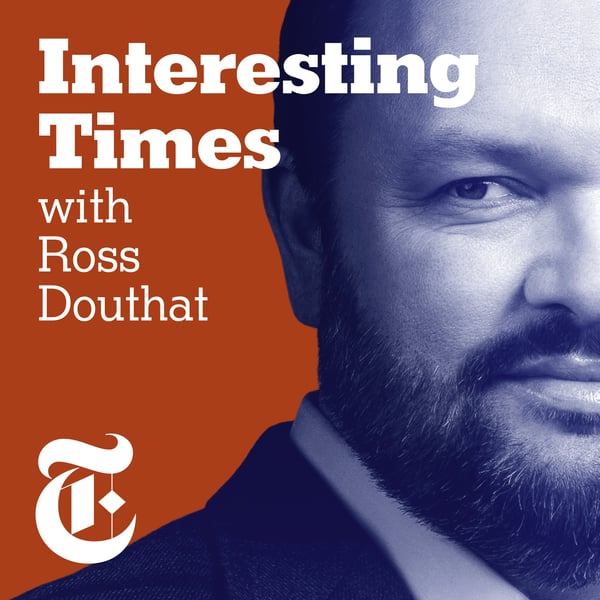Not Everyone Is Worried About America's Falling Birth Rates
Matter of Opinion
New York Times Opinion
4.2 • 7.2K Ratings
🗓️ 23 June 2021
⏱️ 34 minutes
🧾️ Download transcript
Summary
Transcript
Click on a timestamp to play from that location
| 0:00.0 | Today on the argument, what's the big deal about the falling birth rate? |
| 0:07.0 | The U.S. Census reports over the last decade the population grew at the slowest rate since |
| 0:16.6 | the 1930s. |
| 0:17.6 | The number of babies the average woman is expected to deliver in her lifetime has dropped from |
| 0:22.2 | nearly 4 in the 1950s to less than 2 today and that could present an entirely different |
| 0:28.1 | threat to society as we know it. |
| 0:30.1 | You have an economy that since the end of the Second World War has grown based on consumerism, |
| 0:35.1 | what happens when all your consumers are old and they have everything they want? |
| 0:41.1 | A lot of headlines about falling birth rates in the United States elsewhere make it |
| 0:45.0 | sound like a major disaster. |
| 0:47.3 | That fewer babies spells doom for our future economy and that an older population means fewer |
| 0:52.1 | workers and fewer people paying into social security. |
| 0:55.6 | I'm Jane Kostin and to me having kids is the result of individual choices and societal |
| 1:00.5 | context. |
| 1:01.5 | Do you want to have kids and does it feel possible to have kids? |
| 1:06.1 | That's why I'm interested in all the debates around declining birth rates. |
| 1:09.8 | I wonder what's driving the choices families are making and how policymakers are thinking |
| 1:13.8 | about changing them and I'm wondering should we be concerned about this? |
| 1:18.1 | How concerned or not should we be? |
| 1:24.3 | My guest today study population growth and shrinking and have different ideas on how |
| 1:28.3 | worse and falling birth rates are than what we should do about it. |
| 1:32.1 | Flemingstone is the director of research at the consulting firm Demographic Intelligence, |
... |
Please login to see the full transcript.
Disclaimer: The podcast and artwork embedded on this page are from New York Times Opinion, and are the property of its owner and not affiliated with or endorsed by Tapesearch.
Generated transcripts are the property of New York Times Opinion and are distributed freely under the Fair Use doctrine. Transcripts generated by Tapesearch are not guaranteed to be accurate.
Copyright © Tapesearch 2025.

